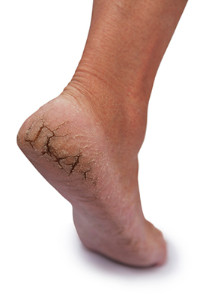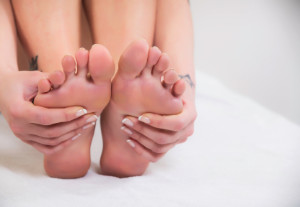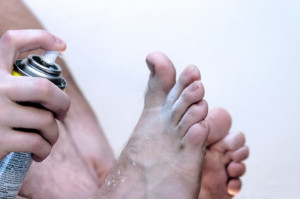Items filtered by date: July 2017
Raphael Guerreiro in Recovery from Foot Surgery
 Raphael Guerreiro, defender for Borussia Dortmund, is expected to be sidelined for four months after undergoing foot surgery. Guerreiro suffered the injury while playing the Confederations Cup against the Russian team. At first, it was believed that Guerreiro had only suffered a bruised foot, but they later learned that this was not the case. The defender scored 9 goals in 35 games last season with Borussia, but unfortunately will not be able to return to his team until around November due to the surgery.
Raphael Guerreiro, defender for Borussia Dortmund, is expected to be sidelined for four months after undergoing foot surgery. Guerreiro suffered the injury while playing the Confederations Cup against the Russian team. At first, it was believed that Guerreiro had only suffered a bruised foot, but they later learned that this was not the case. The defender scored 9 goals in 35 games last season with Borussia, but unfortunately will not be able to return to his team until around November due to the surgery.
Foot surgery is sometimes necessary to treat a foot ailment. To learn more, contact Dr. Ronald Sheppard of Warren-Watchung Podiatry Center. Our doctor will assist you with all of your foot and ankle needs.
When Is Surgery Necessary?
Foot and ankle surgery is generally reserved for cases in which less invasive, conservative procedures have failed to alleviate the problem. Some of the cases in which surgery may be necessary include:
- Removing foot deformities like bunions and bone spurs
- Severe arthritis that has caused bone issues
- Cosmetic reconstruction
What Types of Surgery Are There?
The type of surgery you receive will depend on the nature of the problem you have. Some of the possible surgeries include:
- Bunionectomy for painful bunions
- Surgical fusion for realignment of bones
- Neuropathy decompression surgery to treat nerve damage
Benefits of Surgery
Although surgery is usually a last resort, it can provide more complete pain relief compared to non-surgical methods and may allow you to finally resume full activity.
Surgical techniques have also become increasingly sophisticated. Techniques like endoscopic surgery allow for smaller incisions and faster recovery times.
If you have any questions please feel free to contact one of our offices located in Marlboro and Watchung, NJ . We offer the newest diagnostic and treatment technologies for all your foot and ankle needs.
Preventing Cracked Heels
 Having cracked heels are a common foot condition that tends to appear during the summer months. This is mainly due to the increased flip-flop and sandal usage in warmer weather. In regards to cracked feet, studies have shown that “71 percent of women regularly suffer, while only 34 per cent of men are happy with the condition of their feet.” Cracked heels are often the result of a lack of elasticity in the skin, but there are ways you can avoid developing them. One of the most efficient ways to decrease your chances of getting cracked feet is to correct the way you walk. People who walk while putting a lot of pressure on their heels are more likely to develop cracks. Another simple way to prevent cracked heels is to moisturize. Foot balms can be used to prevent the skin on your feet from drying out.
Having cracked heels are a common foot condition that tends to appear during the summer months. This is mainly due to the increased flip-flop and sandal usage in warmer weather. In regards to cracked feet, studies have shown that “71 percent of women regularly suffer, while only 34 per cent of men are happy with the condition of their feet.” Cracked heels are often the result of a lack of elasticity in the skin, but there are ways you can avoid developing them. One of the most efficient ways to decrease your chances of getting cracked feet is to correct the way you walk. People who walk while putting a lot of pressure on their heels are more likely to develop cracks. Another simple way to prevent cracked heels is to moisturize. Foot balms can be used to prevent the skin on your feet from drying out.
Cracked heels are unsightly and can cause further damage to your shoes and feet. If you have any concerns, contact Dr. Ronald Sheppard from Warren-Watchung Podiatry Center. Our doctor can provide the care you need to keep you pain-free and on your feet.
Cracked Heels
Cracked heels appear unappealing and can make it harder for you walk around in sandals. Aside from looking unpleasant, cracked heels can also tear stockings, socks, and wear out your shoes. There are several methods to help restore a cracked heel and prevent further damage.
How Do You Get Them?
Dry skin is the number one culprit in creating cracked heels. Many athletes, walkers, joggers, and even swimmers suffer from cracked heels. Age and skin oil production play a role to getting cracked heels as well.
Promote Healing
Over the counter medicines can help, especially for those that need instant relief or who suffer from chronic dry feet.
Wear Socks – Wearing socks with medicated creams helps lock in moisture.
Moisturizers – Applying both day and night will help alleviate dryness which causes cracking.
Pumice Stones – These exfoliate and remove dead skin, which allows for smoother moisturizer application and better absorption into the skin.
Change in Diet
Eating healthy with a well-balanced diet will give the skin a fresh and radiant look. Your body responds to the kinds of food you ingest. Omega-3 fatty acids and zinc supplements can also revitalize skin tissue.
Most importantly, seek professional help if unsure how to proceed in treating cracked heels. A podiatrist will help you with any questions or information needed.
If you have any questions, please feel free to contact one of our offices located in Marlboro and Watchung, NJ . We offer the newest diagnostic and treatment technologies for all your foot care needs.
Dealing with Plantar Fasciitis
 Plantar fasciitis occurs when the tough band of tissue along the base of the foot (plantar fascia) becomes inflamed. The condition itself can be caused by a variety of reasons; the most common being having flat feet, exercising too much, being overweight, or wearing improper footwear. Most people with plantar fasciitis experience pain in the morning that usually goes away as the day progresses. It is a tricky condition to treat because not all cases are the exact same. A treatment that works for one person may not necessarily work for others. However, resting the feet often allows the plantar fasciitis to repair itself over time.
Plantar fasciitis occurs when the tough band of tissue along the base of the foot (plantar fascia) becomes inflamed. The condition itself can be caused by a variety of reasons; the most common being having flat feet, exercising too much, being overweight, or wearing improper footwear. Most people with plantar fasciitis experience pain in the morning that usually goes away as the day progresses. It is a tricky condition to treat because not all cases are the exact same. A treatment that works for one person may not necessarily work for others. However, resting the feet often allows the plantar fasciitis to repair itself over time.
Plantar warts can be very uncomfortable. If you need your feet checked, contact Dr. Ronald Sheppard from Warren-Watchung Podiatry Center. Our doctor will assist you with all of your foot and ankle needs.
About Plantar Warts
Plantar warts are the result of HPV, or human papillomavirus, getting into open wounds on the feet. They are mostly found on the heels or balls of the feet.
While plantar warts are generally harmless, those experiencing excessive pain or those suffering from diabetes or a compromised immune system require immediate medical care. Plantar warts are easily diagnosed, usually through scraping off a bit of rough skin or by getting a biopsy.
Symptoms
- Lesions on the bottom of your feet, usually rough and grainy
- Hard or thick callused spots
- Wart seeds, which are small clotted blood vessels that look like little black spots
- Pain, discomfort, or tenderness of your feet when walking or standing
Treatment
- Freezing
- Electric tool removal
- Laser Treatment
- Topical Creams (prescription only)
- Over-the-counter medications
To help prevent developing plantar warts, avoid walking barefoot over abrasive surfaces that can cause cuts or wounds for HPV to get into. Avoiding direct contact with other warts, as well as not picking or rubbing existing warts, can help prevent the further spread of plantar warts. However, if you think you have developed plantar warts, speak to your podiatrist. He or she can diagnose the warts on your feet and recommend the appropriate treatment options.
If you have any questions please feel free to contact one of our offices located in Marlboro and Watchung, NJ . We offer the newest diagnostic and treatment technologies for all your foot and ankle needs.
Read more about Plantar FasciitisTips for Dealing with Athlete’s Foot
 Athlete’s foot is a contagious fungal infection that can spread to the toenails and hands. The condition itself may be hard to cure, and it can be caught by direct contact with someone who has it or by touching surfaces that have been contaminated with it. The fungus has been found to thrive in damp environments such as showers, locker room floors, and around swimming pools. If you want to avoid getting athlete’s foot, you should wash your feet with soap and water and dry them thoroughly, especially between the toes. You also should avoid sharing your socks with other people since this can help spread the fungus. Lastly, be sure to change your socks when your feet get sweaty, and wear shoes that are made from a breathable material.
Athlete’s foot is a contagious fungal infection that can spread to the toenails and hands. The condition itself may be hard to cure, and it can be caught by direct contact with someone who has it or by touching surfaces that have been contaminated with it. The fungus has been found to thrive in damp environments such as showers, locker room floors, and around swimming pools. If you want to avoid getting athlete’s foot, you should wash your feet with soap and water and dry them thoroughly, especially between the toes. You also should avoid sharing your socks with other people since this can help spread the fungus. Lastly, be sure to change your socks when your feet get sweaty, and wear shoes that are made from a breathable material.
Athlete’s foot is an inconvenient condition that can be easily reduced with the proper treatment. If you have any concerns about your feet and ankles, contact Dr. Ronald Sheppard from Warren-Watchung Podiatry Center. Our doctor will treat your foot and ankle needs.
Athlete’s Foot: The Sole Story
Athlete's foot, also known as tinea pedis, can be an extremely contagious foot infection. It is commonly contracted in public changing areas and bathrooms, dormitory style living quarters, around locker rooms and public swimming pools, or anywhere your feet often come into contact with other people.
Solutions to Combat Athlete’s Foot
- Hydrate your feet by using lotion
- Exfoliate
- Buff off nails
- Use of anti-fungal products
- Examine your feet and visit your doctor if any suspicious blisters or cuts develop
Athlete’s foot can cause many irritating symptoms such as dry and flaking skin, itching, and redness. Some more severe symptoms can include bleeding and cracked skin, intense itching and burning, and even pain when walking. In the worst cases, Athlete’s foot can cause blistering as well. Speak to your podiatrist for a better understanding of the different causes of Athlete’s foot, as well as help in determining which treatment options are best for you.
If you have any questions please feel free to contact one of our offices located in Marlboro and Watchung, NJ . We offer the newest diagnostic and treatment technologies for all your foot and ankle needs.
